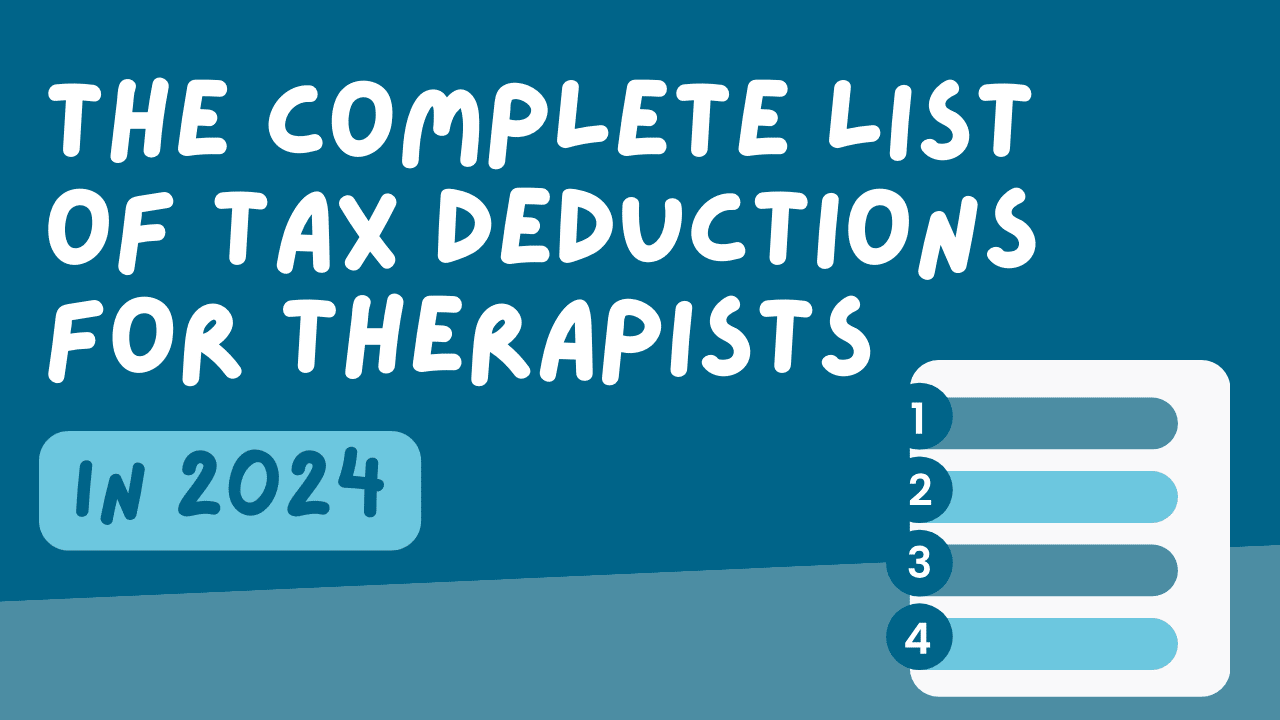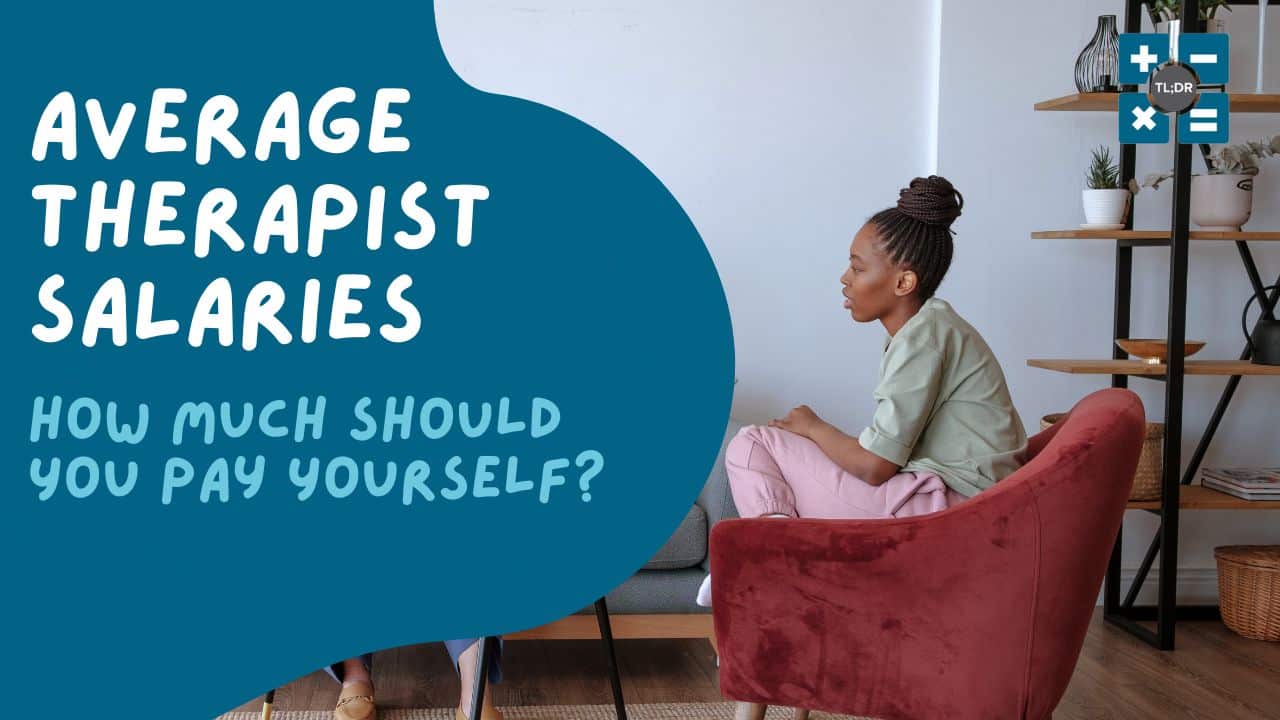We’ve previously covered some essential tax deductions for therapists in one of our earlier blog posts.
However, in today’s blog, we’re taking it a step further by presenting the ultimate comprehensive list.
Yes, you read that correctly. If you can deduct it as a therapist, you’ll find it on this list!
And to be honest, most of your legitimate* business expenses will count as private practice tax deductions.
*When we say legitimate, we specifically mean reasonable, ordinary, and necessary expenses.
Congress recognizes that you have to spend money to make money, and hence they’re willing to give you a break on said spending of money.
So, even with Tax Day a ways off, it’s the money you spend today that affects the taxes you will pay next year.
Let’s dive into all of the tax deductions for therapists that you should consider this year.
Here’s Our Ultimate List of Tax Deductions for Therapists in 2023:
Home Office Deduction: If you want to defray your burdensome mortgage or your house rent as Mark Twain mentioned, consider taking the Home Office Deduction. However, we advise you to educate yourself thoroughly on this deduction before you attempt to use it because there are several pitfalls.
Supervision Expenses: Good news! Supervision expenses, as required for your therapy licensure, are deductible as long as they’re reasonable, ordinary, and necessary for your business.
Software Expenses: You know all those sundry apps and software packages you use to keep everything running smoothly? These are deductible!
Professional Organization Fees: Membership fees for professional organizations are deductible.
Advertising Costs: Buying up ad space in Psychology Today is a deductible advertising expense.
Continuing Education: Continuing Education is deductible. If your employees buy their own CE and submit receipts to you for reimbursement, then you need to set up an accountable plan.
Business Meals: Deducting meals is tricky business. In fact, the guidelines are fuzzy even for the most experienced accountants. For 2023, you can deduct 100% of a meal that qualifies. In order to qualify, the meal must be purchased from a qualifying establishment, and must be purchased during a business trip or shared with a business associate.
Bank Fees: Overdraft fees are incurred when you overdraw an account. Maintenance fees are charged monthly. You can record both of these fees in your books as a regular expense.
Vehicle Use: There are two ways you can calculate your tax write-off: by mileage rate and by actual expenses. Speak to an experienced accountant for therapists to see which option is the best for you. Hint: The actual expense deduction will usually save you the most.
Business Travel: If you travel for business—for instance, to a conference, or in order to give a talk or facilitate a workshop—you can deduct most of the costs. You may even be able to squeeze in some vacationing while you’re at it, but speak to your accountant!
Health Insurance: Health insurance is deductible if you pay for your own plan. It doesn’t count if you’re covered under your partner’s insurance plan; that’s an expense for their employer’s business.
Personal and Business Items: If you have items that you use personally and for your business (such as a cell phone), come up with a reasonable way to determine what portion of the use is personal and what portion is for your business. Using a percentage is one of the simplest methods (if you use it for business 30% of the time, then 30% of the expenses are business expenses).
The Qualified Business Income (QBI) Deduction: The QBI deduction lets you write off up to 20% of your income, and most solo therapists qualify for it. There are a few complexities involved—such as a maximum income level—so speak with your experienced accountant to start taking advantage of it ASAP.
At this point, you might be thinking about one of your biggest expenses of all, one that we haven’t mentioned — student loan interest.
While you can surely argue that it was reasonable, ordinary, and necessary for you to get your psychotherapy degree in order to set up your own practice, unfortunately, it’s not deductible as a business expense.
You can revisit student loan interest expense when it comes tax time, and put it on your 1040 (but not your Schedule C).
TL;DR: Generally speaking, most private practice expenses you incur that are reasonable, ordinary, and necessary are tax deductible. Make sure that you’re not mixing business and personal expenses together, as with student loan interest or payments for your personal cell phone. Always keep in mind that your goal is to maximize your after-tax income, not necessarily minimize your taxes! If you have questions about tax deductions for therapists, schedule an introductory session with us any time.





